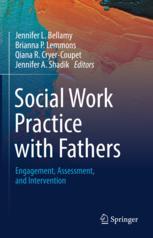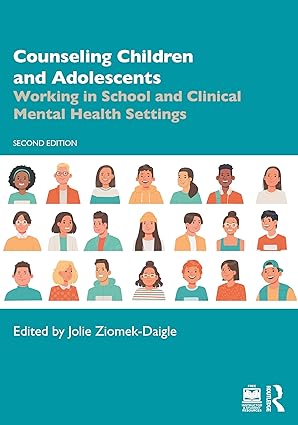The editors of this book are all women who have come to recognize the need for, and the lack of, equitable attention to fathers in social work. Social work is a female- dominated field, which some suggest has contributed to the poor engagement of fathers in social services—particularly in those systems and programs that are largely staffed by women. While women have an important role to play in support- ing father engagement, we felt it critical to bring the voices of men and fathers to this text. Therefore, the editors invited a group of authors diverse in terms of race, ethnicity, and gender to contribute to this text. We invited them to draw upon their expertise and experiences in multiple fields to present a relevant snapshot of current theory, literature, and research on assessment, engagement, and intervention prac- tices with fathers. Some are researchers and academics; others are policy makers, administrators, and service providers. Every chapter follows a similar format, including an introduction, background, and context, followed by conceptual framing, recommended approaches, resources, and discussion questions designed to spark additional reflection and insight from readers. Some chapter authors have more expertise in providing services at the micro and mezzo levels, some work on programs and policies at the macro level, and some are researchers and educators. Due to the substantive expertise, identities, and experiences of the authors, the framing, perspective, and voice for each chapter will differ. The provision of equitable father-inclusive services is not the task of one of us alone but requires a fundamental shift in social service systems and the way we all work together as social workers to serve fathers in research, policy, and practice
چکیده فارسی
ویراستاران این کتاب همه زنانی هستند که به نیاز و عدم توجه عادلانه به پدران در کار اجتماعی پی برده اند. مددکاری اجتماعی یک حوزه تحت سلطه زنان است، که برخی معتقدند به مشارکت ضعیف پدران در خدمات اجتماعی کمک کرده است - به ویژه در سیستم ها و برنامه هایی که عمدتاً توسط زنان کار می شود. در حالی که زنان نقش مهمی در حمایت از نامزدی پدر ایفا میکنند، ما احساس میکنیم ضروری است که صدای مردان و پدران را به این متن بیاوریم. بنابراین، ویراستاران از گروهی از نویسندگان مختلف از نظر نژاد، قومیت و جنسیت دعوت کردند تا در این متن مشارکت کنند. ما از آنها دعوت کردیم تا از تخصص و تجربیات خود در زمینههای مختلف استفاده کنند تا تصویری فوری از نظریه، ادبیات و تحقیقات جاری در مورد ارزیابی، مشارکت و شیوههای مداخله با پدران ارائه دهند. برخی پژوهشگران و دانشگاهیان هستند. دیگران سیاست گذاران، مدیران و ارائه دهندگان خدمات هستند. هر فصل از قالب مشابهی پیروی می کند، شامل مقدمه، پیشینه، و زمینه، و به دنبال آن چارچوب بندی مفهومی، رویکردهای توصیه شده، منابع، و سؤالات بحث طراحی شده برای جرقه زدن بازتاب و بینش بیشتر از خوانندگان. برخی از نویسندگان فصل تخصص بیشتری در ارائه خدمات در سطوح خرد و میزانسن دارند، برخی بر روی برنامه ها و سیاست ها در سطح کلان کار می کنند و برخی محقق و مربی هستند. با توجه به تخصص اساسی، هویت و تجربیات نویسندگان، چارچوب بندی، دیدگاه و صدای هر فصل متفاوت خواهد بود. ارائه خدمات عادلانه و فراگیر پدر تنها وظیفه یکی از ما نیست، بلکه مستلزم یک تغییر اساسی در سیستم های خدمات اجتماعی و روشی است که همه ما به عنوان مددکار اجتماعی برای خدمت به پدران در تحقیق، سیاست و عمل با هم کار می کنیم
ادامه ...
بستن ...
Defining Parenting, Fathering, and Co-Parenting It is important to define what we mean by parenting, fathering, and co-parenting. Defining these terms is more complicated than it might seem at first as they are not used consistently throughout the field or in the literature describing fathers and fathering. From classic anthropological and human development perspectives, par- enting is often defined as a primary mechanism of socialization, that is, a primary means of training and preparing children to meet the demands of their environments and take advantage of the opportunities within those environments (National Academies of Science, Engineering, and Medicine, 2016). For this book, we take a broad view of parenting activities, from more direct caretaking activities (e.g., feed- ing, clothing, monitoring) to more indirect forms of parenting (e.g., contributing to decision making about education, health, and other activities), financial contribu- tions, and emotional support.
ادامه ...
بستن ...










